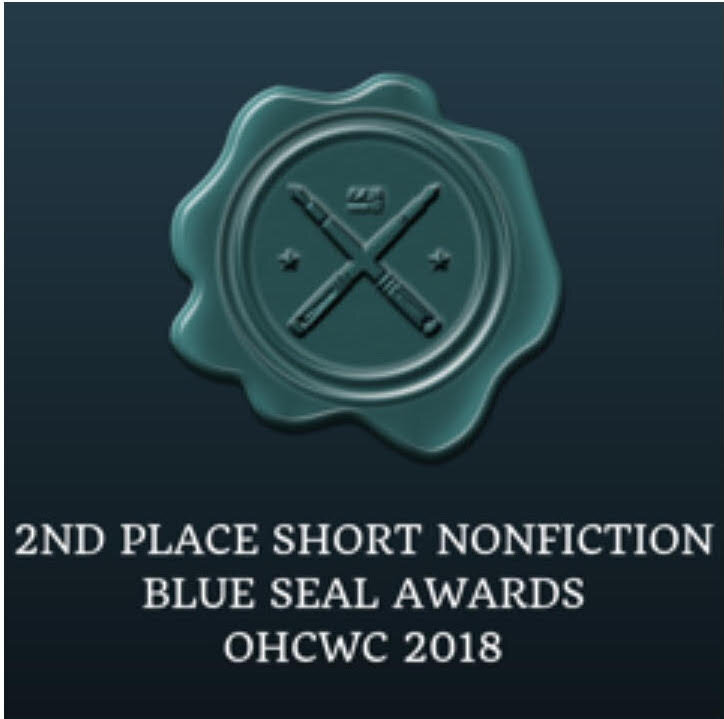From her passenger seat in the front of the car, my friend turned backwards and placed a present into my hand. Her thoughtfulness touched me, and yes, the Bolesławiec pottery pitcher found a prominent place in my kitchen.
But this is not about her gift; this is about her card. The small orange card with white lettering, tucked inside the bag, silently proclaimed a life-changing message: Gratitude turns what we have into enough.
Now the card stands on my desk; I read it, I mulch it, I meditate over it. When I leave my desk, this message goes with me as my mental companion.
How can such a small thought produce such amazing results? I believe several realities emerge:
Gratitude turns what we have into enough.
Control
I can control this! For once, control is a good thing. Normally, the obsession to control others, circumstances, outcomes and events pours poison into the river of life. You and I drink the contaminated water without even realizing what we are doing to ourselves.
Here, though, with gratitude, we release the compulsion to control others. Instead, we decide to control the internal needle within the confines of ourselves. Boundaries blocking blessings collapse; access to joy and contentment follow suit. This is possible, because it is my choice to choose gratitude. The power to choose becomes huge.
Gratitude turns what we have into enough.
Transformation
This is not a formula; this is a decision. A mystery exits here, and definition of the wonder eludes this writer. However, I do know gratitude is available to me in every situation, in every relationship - not just in every season of life, but every day of life. From the muck and mire of disappointment, I can step onto the solid ground of contentment. More, better, different, and other morph into enough when gratitude is the conscious choice.
No, gratitude does not ignore the pain; it makes a path through the pain. Gratitude does not dismiss the dilemma; it determines to live in the midst of the dilemma.
For me, it worked like this when:
· The group gathered did not include everyone I hoped for. Choosing gratitude brought joy with those present rather than destructive discouragement regarding those not present.
· The visit seemed totally ruined. My Mother was sick the majority of her two weeks with us. Choosing gratitude made room for a different perspective – as a new widow she was not home alone battling a terrible virus.
Gratitude turns what we have into enough.
Caution
This is not, “Oh well; whatever.” This is not a stiff upper lip that breathes air from the resources of self, and marches forward in martyrdom. No, not at all. Gratitude is a spiritual paradox.
On this one, science agrees with God!
Here are 7 scientifically proven benefits:
1. Gratitude opens the door to more relationships. Not only does saying “thank you” constitute good manners, but showing appreciation can help you win new friends, according to a 2014 study published in Emotion. The study found that thanking a new acquaintance makes them more likely to seek an ongoing relationship. So whether you thank a stranger for holding the door or send a thank-you note to that colleague who helped you with a project, acknowledging other people’s contributions can lead to new opportunities.
2. Gratitude improves physical health. Grateful people experience fewer aches and pains and report feeling healthier than other people, according to a 2012 study published in Personality and Individual Differences. Not surprisingly, grateful people are also more likely to take care of their health. They exercise more often and are more likely to attend regular check-ups, which is likely to contribute to further longevity.
3. Gratitude improves psychological health. Gratitude reduces a multitude of toxic emotions, from envy and resentment to frustration and regret. Robert Emmons, a leading gratitude researcher, has conducted multiple studies on the link between gratitude and well-being. His research confirms that gratitude effectively increases happiness and reduces depression.
4. Gratitude enhances empathy and reduces aggression. Grateful people are more likely to behave in a prosocial manner, even when others behave less kindly, according to a 2012 study by the University of Kentucky. Study participants who ranked higher on gratitude scales were less likely to retaliate against others, even when given negative feedback. They experienced more sensitivity and empathy toward other people and a decreased desire to seek revenge.
5. Grateful people sleep better. Writing in a gratitude journal improves sleep, according to a 2011 study published in Applied Psychology: Health and Well-Being. Spend just 15 minutes jotting down a few grateful sentiments before bed, and you may sleep better and longer.
6. Gratitude improves self-esteem. A 2014 study published in the Journal of Applied Sport Psychology found that gratitude increased athletes’ self-esteem, an essential component to optimal performance. Other studies have shown that gratitude reduces social comparisons. Rather than becoming resentful toward people who have more money or better jobs—a major factor in reduced self-esteem—grateful people are able to appreciate other people’s accomplishments.
7. Gratitude increases mental strength. For years, research has shown gratitude not only reduces stress, but it may also play a major role in overcoming trauma. A 2006 study published in Behavior Research and Therapy found that Vietnam War veterans with higher levels of gratitude experienced lower rates of post-traumatic stress disorder. A 2003 study published in the Journal of Personality and Social Psychology found that gratitude was a major contributor to resilience following the terrorist attacks on September 11. Recognizing all that you have to be thankful for —even during the worst times—fosters resilience.
Thank you, Alicja. The pitcher you gave me brought joy; the card brought transformation.
Question: Where in your life is there opportunity for gratitude to turn what you have into enough?








